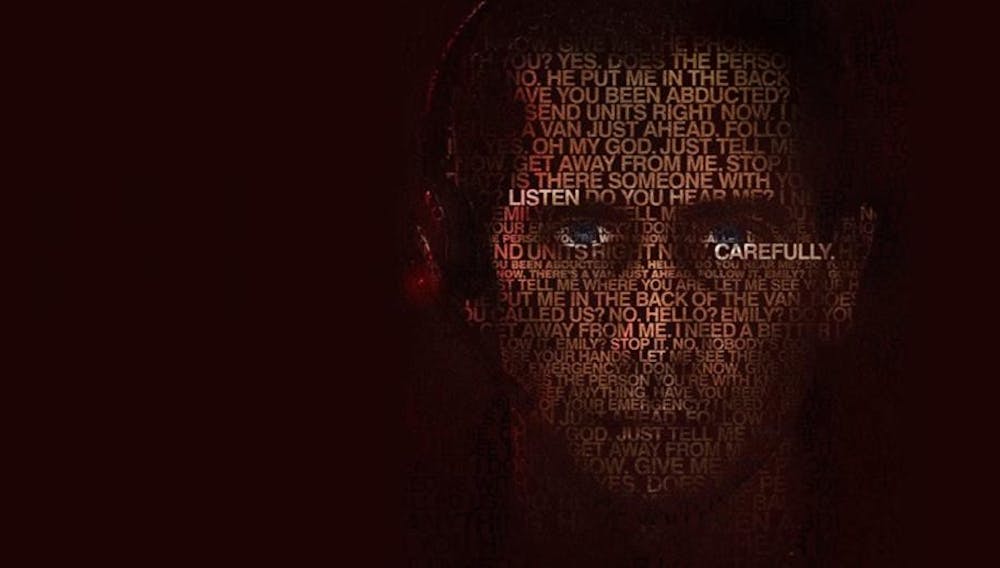Review: ‘The Guilty’ disappoints in comparison to the original

Review: ★★
There’s been a much-maligned trend in movies lately where studios take old, beloved intellectual property and reboot it for modern audiences. “The Guilty” presents something of an interesting experiment from Netflix, then. Although it’s an almost exact remake of a Danish movie of the same name, the original is neither old (it was released just three years ago) or beloved (while it opened to critical acclaim, it made just 4.6 million dollars). Theoretically, this should simplify the path to success for an adaptation. Despite this, “The Guilty” comes nowhere near surpassing an excellent original.
“The Guilty,” which is now streaming on Netflix, follows Joe Baylor (Jake Gyllenhaal), a police officer temporarily forced to work at a 911 call center because of misconduct. Baylor receives a call from a woman kidnapped who must talk in code to not alert her captor, and the rest of the movie depicts his attempt to rescue this woman, all over the phone. This basic setup allows for an interesting concept: almost the entirety of the movie takes place in the call center, with Baylor’s callers only heard and never seen.
When looking at the successfulness of a remake, a useful jumping off point is considering why the remake should have been made. The lack of an answer to this question is perhaps “The Guilty”’s fatal flaw. Director Antoine Fuqua presents no clear vision that couldn’t be better found in the Danish version. The details of the plot are almost identical, often with dialogue blatantly cribbed from the Danish subtitles. Where Fuqua largely differentiates his entry is in the treatment of these details, as the emotional beats within “The Guilty” lose all their subtlety from the original in exchange for overbearing clarity.
This can perhaps best be seen in Gyllenhaal’s performance. “The Guilty” depends on Gyllenhaal hitting it out of the park, as lead Jakob Cedergren does in the original, because the camera is focused closely on Gyllenhaal in almost every shot. Gyllenhaal is certainly no stranger to acclaimed performances and has taken the unsettling roles (see “Nightcrawler”) which make him seem to be a natural fit for the role. He certainly goes for it here, trying to scream, wheeze and ugly cry his way to an emotional reaction from the viewer.
Despite what the acting clips at the Oscars might lead you to believe, though, not every line should be read with a pained bombasity. This is the area where “The Guilty” pales most in comparison to the original; Gyllenhaal is fine, but he just can’t keep up with Cedergen’s dominating performance. When Gyllenhaal turns it up to 11, it carries less weight because so much of his acting is already near an extreme. And, when he finally tries to be reserved, it consequently comes across just as emotionless. Cedergren, meanwhile, has frustration and contempt for others always bubbling under the surface, which enhances the power of his more sparse outbursts.
Another strength of the original, the sound design, falls flat here. With so much of the plot told over the phone, impeccable sound design is necessary to create a rich story. Again, Fuqua chooses to eschew any subtlety for the common trope of a heartbeat or ear ringing sound effect to try and ramp up the drama. The only impression this left, however, is that Fuqua didn’t trust in the performances of his actors nor the viewer’s ability to understand something as obvious as “if Baylor gets in a screaming match, he’ll probably be rattled afterward.”
Given the places “The Guilty” falls short of its original, it’s worth examining where it chooses to differentiate itself in the plot. The most egregious instance of this is in the greater time Fuqua devotes to Baylor’s misconduct as an officer, which is a tricky topic done without a deft hand. This version appears to hope the audience sympathizes with Baylor despite his wrongdoing and makes his misconduct a thematic focus. Even with the additional time given to the topic, I was left feeling it was rushed, an issue I didn’t have with the original. Police brutality carries a much greater political importance in an American movie than a Danish one, and confining it to a pseudo-thematic sublot doesn’t give this topic the time that it needs.
Consistently throughout “The Guilty,” I was left either confused or disappointed at how Fuqua and Gyllenhaal approached an amazing original. Rather than trusting the audience to understand and appreciate subtlety, they led the viewer to water and tried to waterboard them in a story that has the potential for such rich emotion. In a vacuum, “The Guilty” is mediocre at best, but it becomes distinctly bad when considering the much better source it copied.
More from The Rice Thresher

Worth the wait: Andrew Thomas Huang practices patience
Andrew Thomas Huang says that patience is essential to being an artist. His proof? A film that has spent a decade in production, a career shaped by years in the music industry and a lifelong commitment to exploring queer identity and environmental themes — the kinds of stories, he said, that take time to tell right.

Andrew Thomas Huang puts visuals and identity to song
Houston is welcoming the Grammy-nominated figure behind the music videos of Björk and FKA twigs on June 27.

Live it up this summer with these Houston shows
Staying in Houston this summer and wondering how to make the most of your time? Fortunately, you're in luck, there's no shortage of amazing shows and performances happening around the city. From live music to ballet and everything in between, here are some events coming up this month and next!

Please note All comments are eligible for publication by The Rice Thresher.